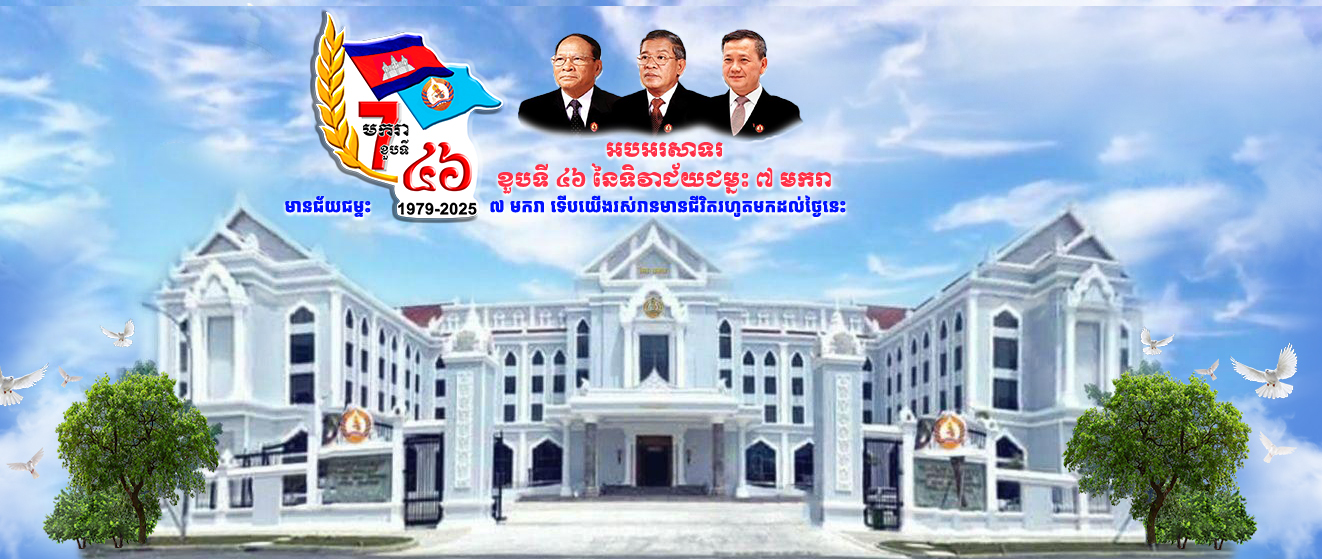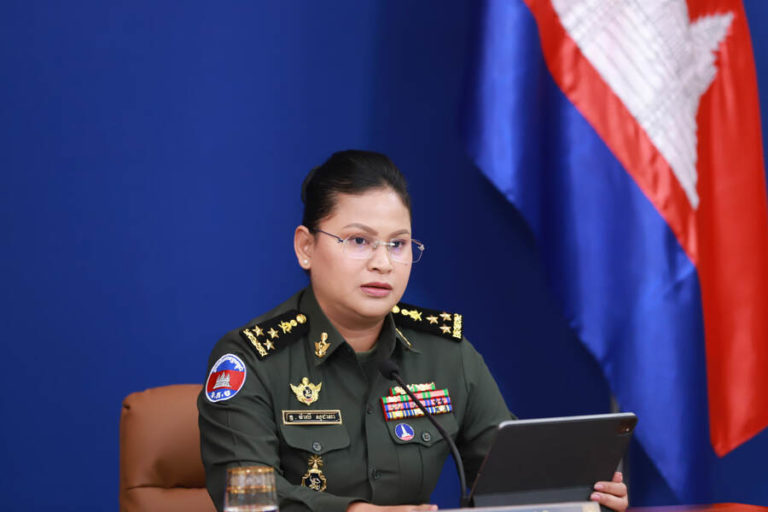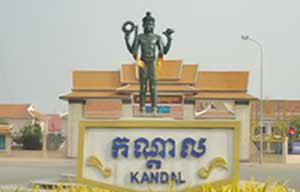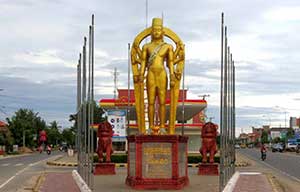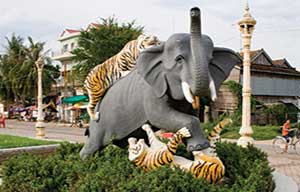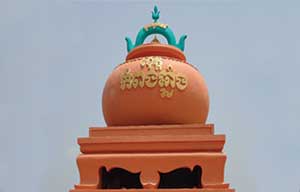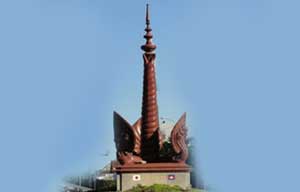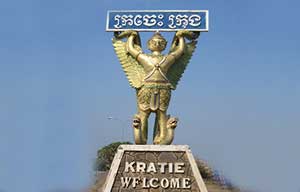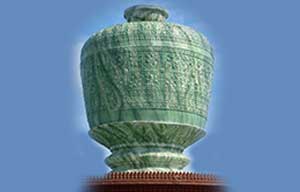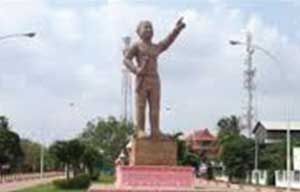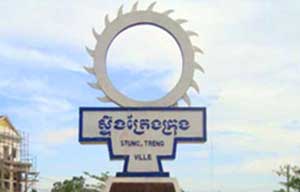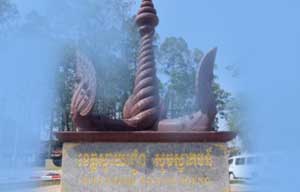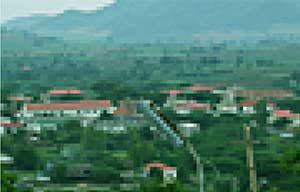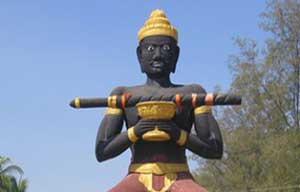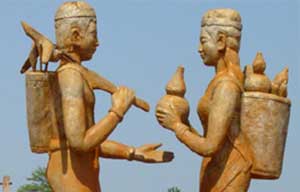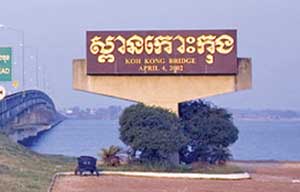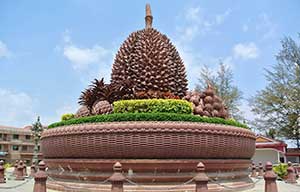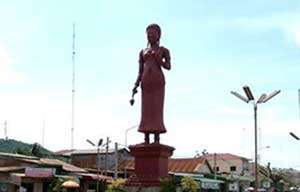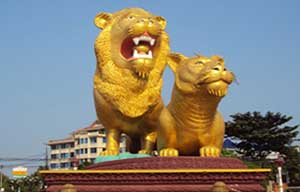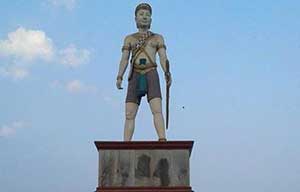Thai soldiers have been reported to use cluster munitions against both military bases and civilian areas in Cambodia, according to Lieutenant General Maly Socheata, Spokesperson for the Ministry of National Defence.
Speaking at a press briefing this morning, Lt. Gen. Socheata said that on the second day of armed conflict between the two neighbouring countries, Thai forces began deploying cluster munitions in deliberate and unlawful attacks on Cambodian territory—a serious violation of the international Convention on Cluster Munitions.
“At 5:25 a.m., Thai forces launched a cluster munition attack on the Phnom Khmouch area, and at 6:50 a.m., they carried out a second strike on Techo Thammachart village, Choam Ksan district, Preah Vihear province,” she reported.
She warned that the use of cluster munitions presents a long-term danger to both human life and the environment.
In response, the Cambodian Mine Action and Victim Assistance Authority (CMAA) expressed its deepest alarm and strongest condemnation following reports that Thai soldiers deployed cluster munitions today, July 25, 2025, in a border area within the Cambodian territory.
Preliminary information received from local authorities and technical demining teams confirms that multiple submunitions – consistent with internationally banned cluster munitions – were deployed in the vicinity of Phnom Khmouch and Techo Thammachart village, posing an immediate and indiscriminate threat to civilians, deminers, and border communities, said CMAA in a press release issued this morning.
According to CMAA, this action constitutes a serious breach of international humanitarian norms. Cluster munitions are banned under the 2008 Convention on Cluster Munitions (CCM) due to their wide-area effect and the long-lasting danger they pose to civilians, particularly children. Cambodia knows all too well the horrific impact of cluster munitions, having endured the devastating legacy of millions of submunitions dropped on its land during past conflicts. These weapons have maimed civilians, obstructed development, and left entire communities in fear for generations.
Thailand is once again resorting to brutal tactics it employed in 2011 during the armed conflict with Cambodia near Preah Vihear Temple, when it used cluster munitions which resulted in widespread damages and contamination.
“The use of cluster munitions – especially in or near civilian-populated border areas – is an unacceptable escalation. It shows complete disregard for human life, humanitarian principles, and regional peace. Although Cambodia is not a state party to the Convention on Cluster Munitions, Cambodia has never used cluster munitions and has worked tirelessly to rid our country of these indiscriminate weapons. Today’s incident threatens not only lives but decades of trust-building and cooperation,” said Senior Minister Ly Thuch, First Vice President of CMAA.
CMAA also condemned this reckless act and demands the immediate cessation of any further deployment of such weapons. This act comes at a time when Cambodia has been exercising maximum restraint and maintaining its full compliance with the Anti-Personnel Mine Ban Convention. CMAA reminds all parties that progress in mine action and regional peacebuilding can only be achieved through dialogue, mutual respect, and the absolute rejection of violence and militarized provocation.
Moreover, CMAA reiterated its commitment to transparency and accountability and invited the international community including the United Nations, ASEAN, and relevant humanitarian disarmament bodies to closely monitor the situation.
Thailand must immediately cease all hostile actions and uphold the principles of international humanitarian law through peaceful dialogue, it emphasised.

